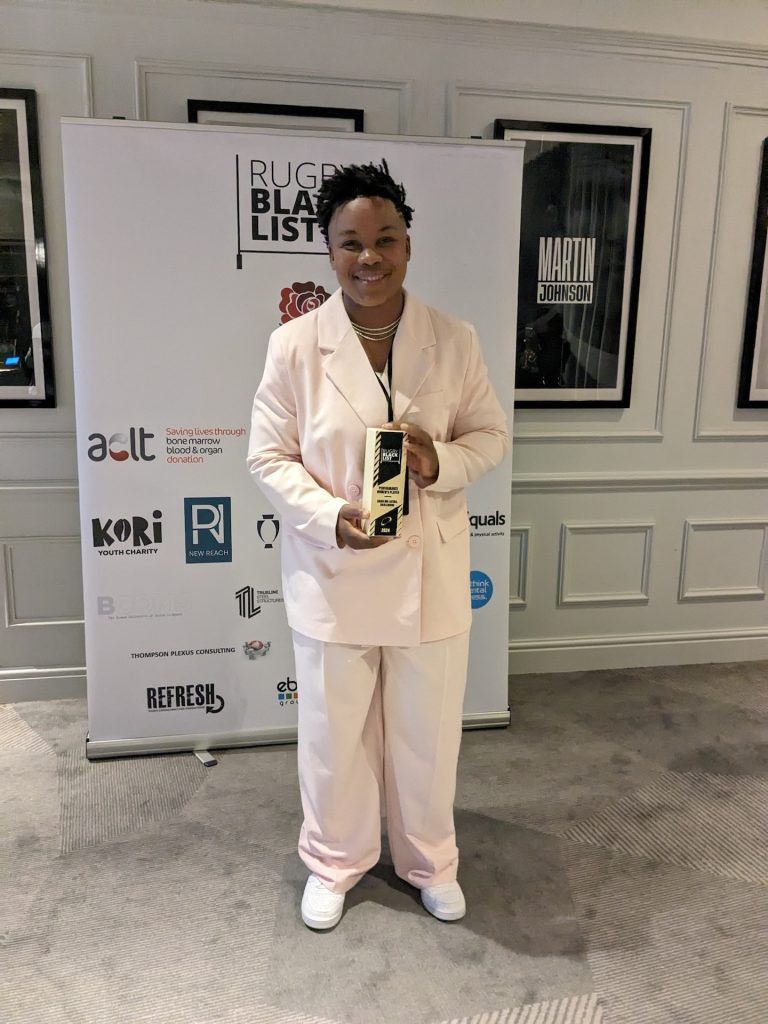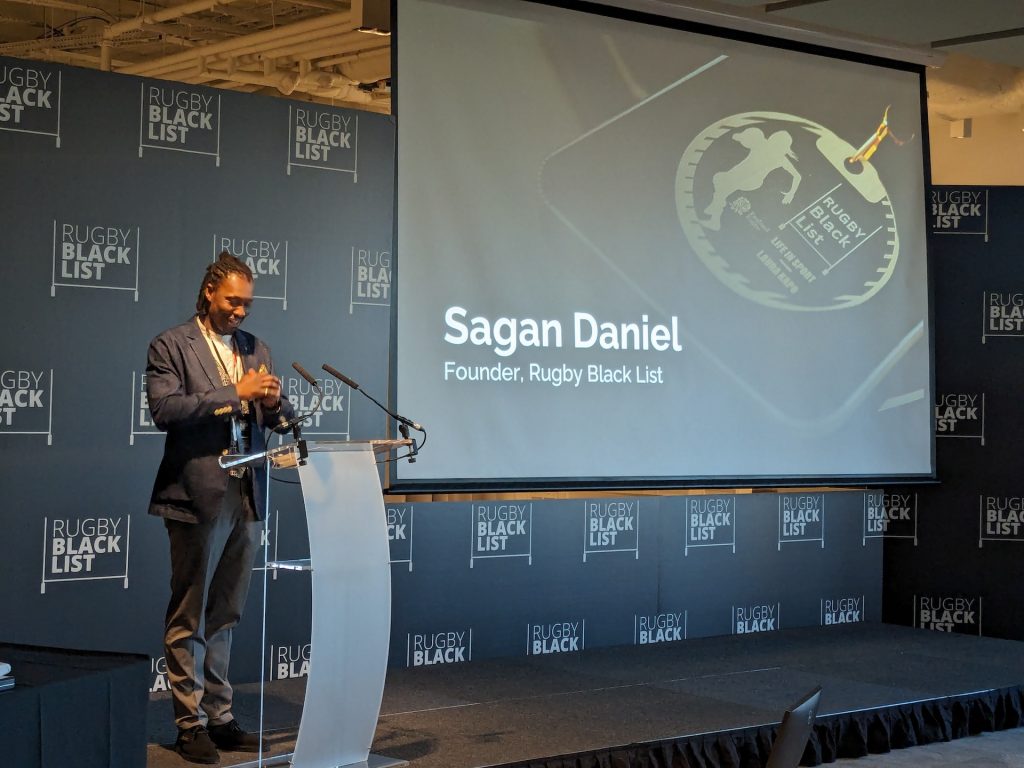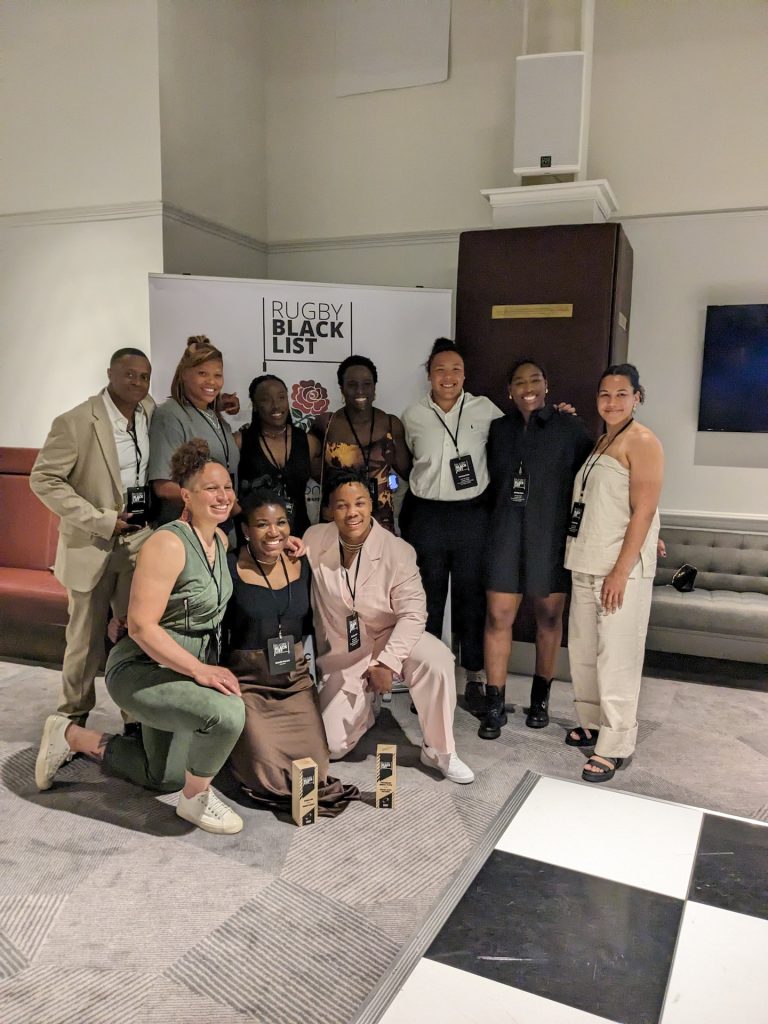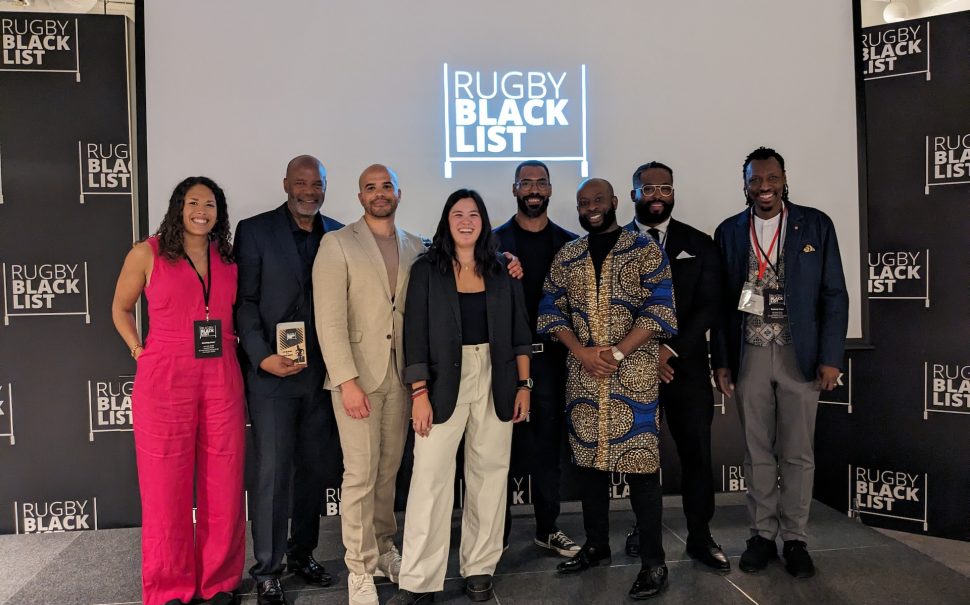The second ever Rugby Black List awards took place at Twickenham Stadium last week as influential members of the black rugby community were honoured.
Stars of both the professional and grassroots game were in attendance, with the likes of Andy Christie, Ugo Monye and Shaunagh Brown present at the awards.
In the performance player categories Exeter and England winger Immanuel Feyi-Waboso and Harlequins and South Africa prop Babalwa Latsha received the accolades.
An emotional Latsha said: “I felt like my heart was going to pop out of my mouth. I was overjoyed but also really humbled.
“It’s validation of a dream I had when I was 21 years old and first picked up a rugby ball, to play rugby at the highest level.
“To get this accolade means that to me and hopefully to other girls in South Africa, and even in the African continent, no dream is too wild that it cannot be attained.”

Latsha, who became the first female professional rugby player in Africa in 2020, has been impressive in a season in which Harlequins have struggled to replicate their usual standards.
Her three tries put her joint fourth in the club’s scoring charts and her carrying ability has been integral to the side.
Also attending the event was founder Sagan Daniels, who has felt expectations grow with the second edition of the Rugby Black List.
“The language I’ve been using is it’s the difficult second album and there’s so much expectation because the first year was a success, but there was a little bit of pressure,” he said.
“There’s a lot of people and we’ve been able to really gather quite a broad range of people from lots of representatives of groups, bodies, organisations, rugby clubs and stuff.”
The Awards are linked to the Football Black List Awards, which began in 2008, 15 years before the Rugby Black List.

Daniels explained that there are various reasons the Rugby Black List was created much later than its football equivalent.
He said: “Arguably football is the top sport within Britain and there is such prestige and resource around it.
“The reason rugby hasn’t been able to do that is because it’s needed to de-yolk itself from being something that’s the privy of the elite that’s conserved within the top echelons of society.
“Rugby’s worked really hard to be more inclusive and demonstrate its inclusivity and it’s needed some glue in terms of the community games, professional game coaches, volunteers, match officials, and people working in the game with the administrators.”
Founder of the Football Black List, Leon Mann MBE, was also at the Awards and has had an advisory role in the creation of the event.
However, Mann was keen to emphasise that the two events should not be carbon copies of each other.
He explained: “They should look quite different because there’s different dynamics in those different sports, so I can’t come in and take the same approach to a different sport.
“The beauty of a black list is you’re entering some pretty sensitive areas of discussion around underrepresentation, but we’re also a big party for a celebration.
“I feel and I’ve seen over the years that sport is willing to open the doors, have a celebration, but also have a real conversation about representation and explore how we find solutions.”

People may question events such as the Rugby Black List and wonder why there is not a Rugby White List.
However, there is not an issue with underrepresentation of white figures in sport and Daniels explains this well.
He said: “If my house was on fire, I wouldn’t want the fire brigade to pour water over all of the houses on the street, I’d want them to pour water on my house.
“We’ve got an endemic systemic problem with inclusion and non-representation of certain pockets of British society.
“I think, let’s address it at the core root of the problem and really get to grips, and once we start addressing it with these pockets of society that will be the broad sea of change we can get across society.”
Featured image credit: Rugby Black List





